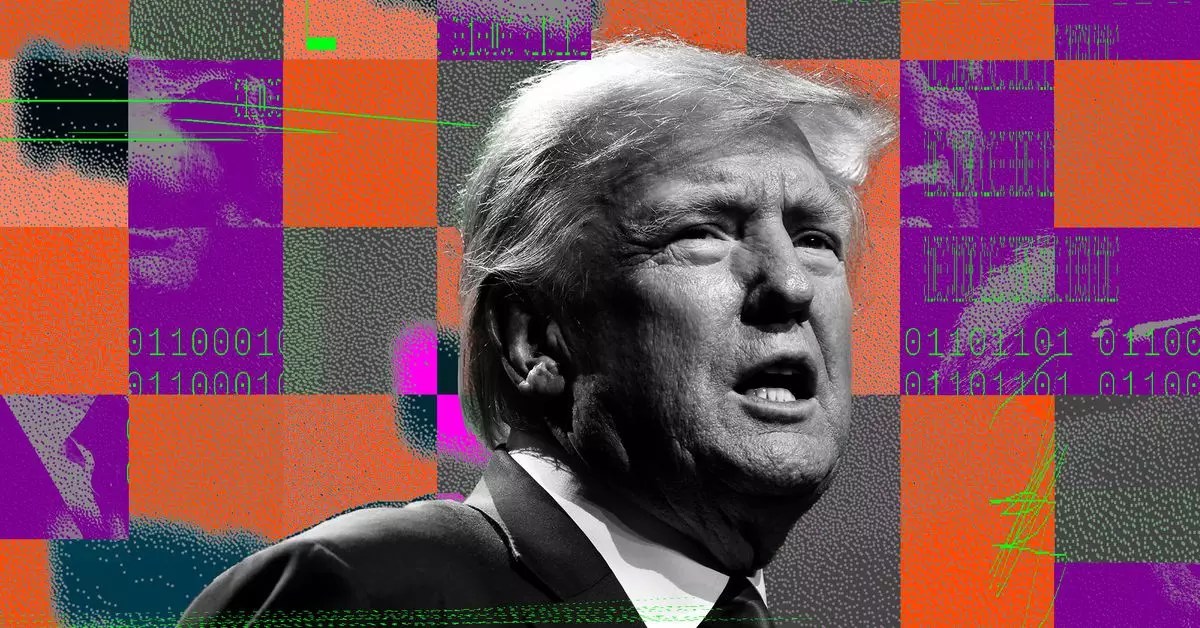Recent developments in the realm of cybersecurity have brought to light a disturbing incident involving the Iranian government and its alleged residency within the digital space of the 2016 presidential elections. The U.S. Department of Justice (DOJ) has charged three Iranian nationals connected to the Islamic Revolutionary Guard Corps (IRGC) with orchestrating a cyberattack targeting former President Donald Trump’s campaign. This incident raises significant concerns about the integrity of electoral processes and the vulnerabilities inherent in our increasingly digital political landscape.
According to the indictment filed by the DOJ, these cyber operatives utilized social engineering tactics and spear phishing to infiltrate the accounts of campaign officials. This method, which is deceptively sophisticated, relies on manipulating victims into revealing sensitive information. Once inside the digital corridors of the campaign, the hackers managed to exfiltrate nonpublic documents and communications, which were subsequently leaked to the media. This underscores a troubling truth: even the most secured networks can fall prey to highly calculated, low-tech strategies.
The hackers’ operations were facilitated by an Iranian internet service provider, Respina Networks, which allegedly granted them unrestricted access to the internet outside Iranian borders, highlighting how state resources can enable cyber offenses. The misuse of commercial virtual private networks (VPNs) and the establishment of fraudulent domains like “tinyurl.ink” and “mailer-daemon.online” further enriched their deceptive repertoire, illustrating an alarming trend in cybercrime where attackers utilize legitimate-looking platforms to initiate their schemes.
While the indictment does not specify which campaign elements were targeted, the Trump campaign has acknowledged that it was subjected to a hacking incident. Although mainstream media outlets chose not to publish the acquired documents, independent reports have emerged, including a dossier on vice presidential candidate JD Vance that garnered attention before its source was suspended from the social media platform X. This escalation leads to broader questions about the role of social media in distributing potentially harmful intelligence.
Assistant Attorney General Matthew G. Olsen characterized these cyberattacks as direct assaults on democratic processes, emphasizing that the divide between digital interference and direct threats to national integrity is increasingly blurred. This sentiment resonates with concerns over the leveraging of cybersecurity by state actors to not only gather information but also to perpetrate disinformation campaigns.
The DOJ’s decision to charge the accused hackers with various offenses such as wire fraud and conspiracy reflects a robust stance against foreign interference and cyber terrorism. Moreover, the U.S. Treasury Department’s offer of a $10 million reward for information regarding these suspects signals a strong commitment to addressing these threats. The confluence of government, technology, and electoral integrity highlights the nuance of modern warfare—battles that are increasingly fought over the digital frontlines.
This incident serves as a stark reminder of the fragility of our electoral systems and the necessity for ongoing vigilance against cyberattacks. As cyber operations evolve, so too must our strategies for safeguarding democratic processes, emphasizing the need for enhanced cybersecurity measures and strategies to counteract foreign interference.


Leave a Reply